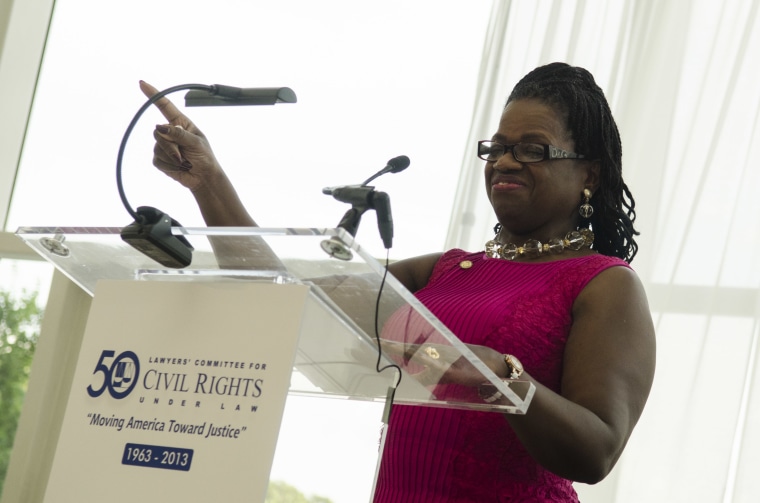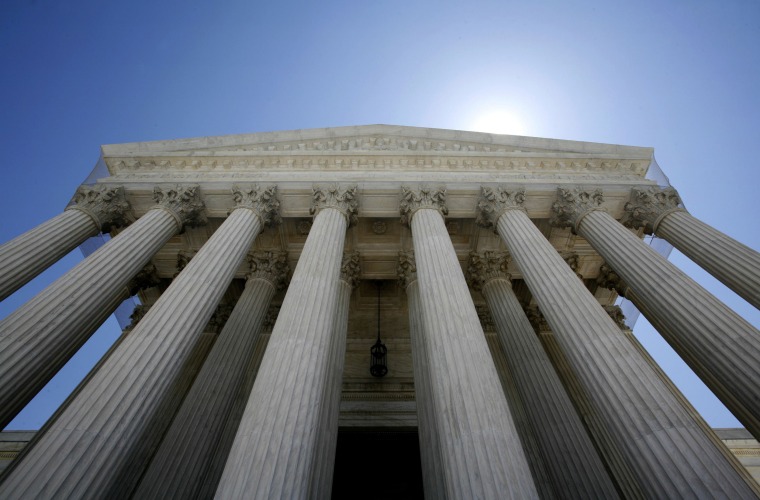In March of 2016, the White House announced that President Barack Obama had nominated Rebecca Ross Haywood—an African American woman—to fill a vacancy on the United States Court of Appeals for the Third Circuit. Yet despite being touted by supporters as “excellent” and “eminently qualified,” her nomination expired earlier this month.
Progressive groups blamed the U.S. Senate for not acting on the Supreme Court nomination of Merrick Garland and scores of lower-court nominations. “….Republicans slow-walked or stonewalled dozens of federal judicial nominations,” said Nan Aron, president of the Alliance for Justice, in a statement on the group’s website.
The scenario provides some insight into the challenges that confronted America’s first black president as his Administration worked to build its legal and judicial legacy. There were lows, say legal observers, but also highs over the past eight years with Obama’s judicial appointments and more.
“President Obama has had a stunning impact on the federal bench,” said Kevin Judd, president of the National Bar Association, a network of some 66,000 black lawyers, judges, educators and law students. “Most of his nominees have been either women, African Americans or persons of color.”
19 percent of the president’s confirmed judges have been African American, compared to 16 percent under President Bill Clinton and seven percent under President George W. Bush.
Judd cited a study co-written by Robert A. Carp, a political science professor at the University of Houston which noted that the Commander in Chief elevated hundreds of African-Americans and other lawyers of color to the nation’s federal courts. The more than 300 Obama-nominated judges are considered to be the most diverse group in U.S. history in terms of terms of gender, ethnicity, and nationality.
According to a White House spokesperson, 19 percent of the president’s confirmed judges have been African American, compared to 16 percent under President Bill Clinton and seven percent under President George W. Bush.
Obama has made 62 lifetime appointments of African Americans to serve on the federal bench: this includes nine African-American circuit court judges, and the appointment of 53 African American district court judges—26 of whom are African-American women. Indeed, Obama appointed more African-American women than any president in history.
Moreover, five states now have their first African-American circuit judge; 10 states now have their first African-American female lifetime-appointed federal judge; and three districts now have their first African-American district judge.
The President also appointed the first Haitian-American (lifetime) federal judge; the first Afro-Caribbean-born district judge; the first African-American female circuit judge in the Sixth Circuit, and the first African-American circuit judge on the First Circuit.
Obama’s appointments also extended to the United States Court of International Trade, the Tax Court, Court of Federal Claims, Courts of Appeals for Veteran’s Claims and for the Armed Forces.

Barbara Arnwine, Founder and President of Transformative Justice Coalition, a non-partisan non-profit based in Washington, D.C. agreed that the Obama administration was highly effective in several areas. Yet she believes there were some “missed opportunities.”
“You cannot find another president who can rival the diversity that he achieved across the board when it comes to Circuit and District court appointments,” said Civil Rights attorney and radio host. “But there was a failure in terms of nominating an African American woman to serve on the Supreme Court, despite many qualified candidates and a great deal of advocacy. It would have been a major part of his legacy.”
She also believes the Administration “started slow in the first year” when it came to prioritizing judicial appointments. “There were some slots they probably could have filled on the lower courts. It didn’t seem to be a focus of his agenda right out the gate, whereas other administrations—Bush, Clinton, were ready to go with appointments when they came in.”
“You cannot find another president who can rival the diversity that he achieved across the board when it comes to Circuit and District court appointments.”—Barbara Arnwine
The 44th president has often expressed that when he assumed office in 2009, his Administration was immediately confronted with pressing concerns: inheriting two global wars and the threat of a modern day Great Depression, among them.
Judd said it’s important to note that this Commander in Chief saw his policies subjected to unprecedented scrutiny by the nation’s courts and partisan political battles.
“Political disagreement on issues like Affordable Care Act decisions and the legal impediments to same sex marriage that may ordinarily have been resolved at the ballot box or in the halls of Congress were instead taken to the courts by a variety of litigants, including the U.S. House of Representatives,” he said.
Particularly after Republican gains in the 2014 midterm elections, the president stated his intention to maximize executive authority to advance policies without Congressional action. He used the power of executive action to tackle certain policy initiatives in the areas of immigration, climate change, education, prescription drug abuse, criminal justice reform and more.
"I think when we look back, we’ll see there was a commitment to inclusivity that strengthened our country in the courts and otherwise.”—Areva Martin
As of Thursday, Obama has granted commutations to more than 1,600 people—more than any other president in history.
That legacy, tied to the legal system and the nation’s history of sentencing inequities is significant, according to many criminal justice advocates. Attorney Nkechi Taifa is Advocacy Director for Criminal Justice for the Open Society Foundations and Convener of the Justice Roundtable Coalition. She and her colleagues have spent years engaged in dialogue with the Obama White House.
“In light of an upcoming Administration that appears they will be unsympathetic to those who once broke the law — no matter how much they and laws may have changed — and the prospect of an Attorney General inimical to bipartisan legislation that would have addressed archaic and lengthy drug sentences, President Obama is the prisoner’s only hope,” she said. “Particularly those whose cells will become coffins because of drug sentence without parole.”

Areva Martin, a Los Angeles attorney who recently received a L’Oréal Paris “Impact” award for her advocacy efforts, including providing legal resources to individuals with autism and other developmental disabilities in under-served communities, praised Obama.
“I don’t think we should take a myopic view of things like the president not appointing a black woman to the High Court,” said Martin. “I look at the totality of his record, especially since he was dealing with years of an obstructionist Congress who wouldn’t even consider many of his judicial picks.”
Martin noted in particular, Obama’s selection of Loretta Lynch as the nation’s first African American woman to serve as Attorney General heading the Justice Department. “His judicial legacy is one in which African Americans, Latinos and the LGBT community were represented. I think when we look back, we’ll see there was a commitment to inclusivity that strengthened our country in the courts and otherwise.”
